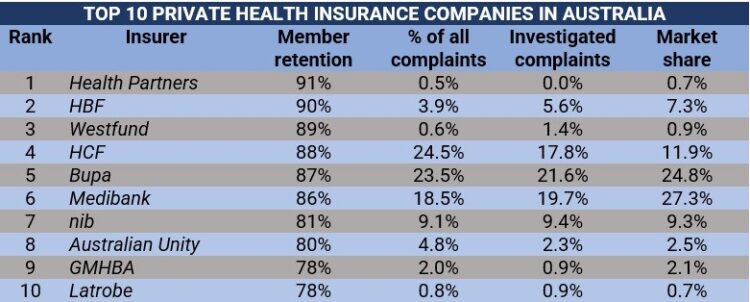
Do you really need health insurance in Australia? It’s a question many Australians grapple with, especially given the existence of Medicare, the country’s universal healthcare system. While Medicare provides essential healthcare services, it has limitations, and private health insurance can offer additional benefits and peace of mind. Understanding the nuances of both systems is crucial for making an informed decision about your healthcare needs.
This article explores the complexities of Australia’s healthcare landscape, examining the pros and cons of both Medicare and private health insurance. We’ll delve into factors that influence your need for private health insurance, including your age, health status, and lifestyle. We’ll also discuss the potential benefits of private health insurance, such as shorter waiting times for elective surgery and access to a broader range of healthcare options. Finally, we’ll consider alternatives to private health insurance, including government-funded programs and community health services.
Understanding Australian Healthcare
Australia boasts a unique healthcare system that combines a universal public healthcare system with private health insurance options. This structure aims to provide accessible healthcare to all Australians while offering additional choices for those seeking more comprehensive coverage.
Medicare
Medicare is Australia’s universal public healthcare system, funded through taxes. It provides essential healthcare services to all Australian citizens and permanent residents, regardless of their income or employment status.
Medicare covers a wide range of medical services, including:
- Doctor’s consultations
- Hospital stays (public wards)
- Some diagnostic tests and treatments
- Certain medications
However, Medicare has limitations. It doesn’t cover:
- Private hospital rooms
- Most dental care
- Physiotherapy and other allied health services
- Some medications and treatments
Medicare is a valuable safety net, but it doesn’t cover all healthcare needs.
Private Health Insurance
Private health insurance is a supplementary option that can provide additional coverage beyond what Medicare offers. These policies are offered by private companies and provide various levels of coverage depending on the chosen plan.
Here are the main types of private health insurance available in Australia:
- Hospital cover: This covers private hospital stays, including private rooms, and can include extras like ambulance services and some medical devices.
- Extras cover: This covers a range of services not covered by Medicare, such as dental, optical, physiotherapy, and some alternative therapies.
- Combined cover: This combines hospital and extras cover, providing comprehensive coverage for a wide range of healthcare needs.
The level of coverage and the premiums vary depending on the chosen plan and the individual’s circumstances.
Factors Affecting Your Need for Health Insurance

Deciding whether or not to get private health insurance in Australia is a personal choice that depends on various factors. It’s crucial to weigh the potential benefits and costs to make an informed decision.
Age
Your age plays a significant role in determining the need for private health insurance. As you age, the likelihood of requiring medical care increases, making private health insurance more attractive. For example, individuals over 65 are eligible for Medicare, but it doesn’t cover all medical expenses. Private health insurance can help bridge the gap, providing access to faster treatment times, specialist consultations, and private hospital care.
Health Status
Your current health status is another critical factor. If you have a pre-existing medical condition or are at higher risk of developing one, private health insurance can offer valuable protection. It can help you access specialized treatments, procedures, and therapies that may not be fully covered by Medicare.
Lifestyle, Do you really need health insurance in australia
Your lifestyle choices can also influence your need for private health insurance. If you engage in high-risk activities, such as extreme sports or have a physically demanding job, private health insurance can provide peace of mind. It can help cover potential injuries or health complications that may arise from your lifestyle.
Cost Comparison
It’s essential to compare the cost of private health insurance with the potential cost of healthcare expenses. While private health insurance involves monthly premiums, it can help you avoid significant out-of-pocket expenses for medical treatments and hospital stays.
Benefits of Private Health Insurance

Private health insurance in Australia offers a range of benefits that can significantly enhance your healthcare experience. By opting for private health insurance, you can gain access to a wider range of healthcare services, potentially reduce waiting times for elective procedures, and enjoy financial protection against unexpected medical expenses.
Shorter Waiting Times for Elective Surgery
Private health insurance can significantly reduce waiting times for elective surgery. Public hospitals often have long waiting lists for non-urgent procedures, while private hospitals generally have shorter wait times due to their ability to handle more patients. This allows individuals to receive timely treatment and avoid prolonged discomfort or delays in their recovery.
For example, in 2023, the average waiting time for a hip replacement in a public hospital in New South Wales was approximately 12 months, while in a private hospital, it was around 4 months.
Access to Broader Healthcare Options
Private health insurance provides access to a wider range of healthcare options, including:
- Choice of hospitals and specialists: You can choose to be treated at a private hospital with a preferred specialist, rather than being assigned to a public hospital and specialist based on availability.
- Access to private rooms: Private health insurance often covers the cost of private rooms in hospitals, offering greater comfort and privacy during your stay.
- Faster access to diagnostic tests: Private health insurance can help expedite the process of getting diagnostic tests, such as MRIs or CT scans, reducing the time it takes to receive a diagnosis and begin treatment.
- Access to alternative therapies: Some private health insurance policies cover alternative therapies, such as physiotherapy, chiropractic care, and acupuncture, which may not be readily available through the public healthcare system.
Tax Benefits and Government Subsidies
The Australian government offers tax benefits and subsidies to encourage individuals to take out private health insurance.
- Private Health Insurance Rebate: The government provides a rebate to individuals who hold private health insurance, reducing the overall cost of premiums.
- Medicare Levy Surcharge: Individuals who do not have private health insurance and earn above a certain income threshold may be required to pay a Medicare Levy Surcharge, an additional tax.
Real-Life Examples
- A young couple in Sydney were planning to start a family. They decided to take out private health insurance to cover the costs of pregnancy and childbirth, ensuring they had access to the best possible care for their future child.
- A retired teacher in Melbourne was diagnosed with a chronic illness that required ongoing treatment. Private health insurance helped cover the costs of her medication, specialist consultations, and physiotherapy, allowing her to manage her condition effectively.
- A busy professional in Brisbane had an unexpected accident that required emergency surgery. Private health insurance covered the costs of his hospital stay, surgery, and rehabilitation, providing financial security during a difficult time.
Considerations for Choosing Private Health Insurance

Choosing the right private health insurance plan can be a complex process, as there are many factors to consider. It is crucial to find a plan that meets your individual needs and budget.
Comparing Insurance Providers and Coverage Options
A significant part of the process involves comparing different insurance providers and their coverage options. It’s important to understand the different types of cover available, including hospital cover, extras cover, and ambulance cover. Hospital cover helps pay for hospital costs, extras cover covers things like dental, physiotherapy, and optical, and ambulance cover helps cover ambulance costs.
- Hospital Cover: This covers the cost of hospital accommodation, treatment, and services, such as surgery, chemotherapy, and dialysis. It is typically offered in different levels of cover, with higher levels providing greater coverage. You can also choose to include specific procedures in your hospital cover.
- Extras Cover: This covers the cost of non-hospital health services, such as dental, physiotherapy, optical, and chiropractic care. Extras cover is often offered in different levels of cover, with higher levels providing greater coverage for a wider range of services.
- Ambulance Cover: This covers the cost of ambulance transport. Ambulance cover is typically offered as a separate policy or as part of a comprehensive health insurance policy.
Understanding the Terms and Conditions of a Private Health Insurance Policy
It is essential to understand the terms and conditions of your private health insurance policy before you sign up. This includes understanding the waiting periods, exclusions, and limitations. Waiting periods are the time you must wait before you can claim certain benefits, while exclusions are services or conditions that are not covered by your policy. Limitations are the maximum amount that your policy will pay for certain services.
- Waiting Periods: These are periods of time that you must wait before you can claim certain benefits, such as hospital cover or extras cover. Waiting periods can vary depending on the policy and the type of cover. For example, there may be a waiting period for certain types of surgery or for dental treatments.
- Exclusions: These are services or conditions that are not covered by your policy. For example, your policy may exclude pre-existing conditions, certain types of treatments, or certain types of services. It is crucial to carefully read the policy document to understand what is and is not covered.
- Limitations: These are the maximum amount that your policy will pay for certain services. For example, there may be a limit on the amount your policy will pay for dental treatment or physiotherapy. It is important to understand these limitations before you sign up for a policy.
Factors to Consider When Choosing a Private Health Insurance Plan
- Your Health Needs: Consider your current health status, family history, and any pre-existing conditions. If you have a pre-existing condition, you may need to choose a policy that specifically covers it.
- Your Budget: Private health insurance premiums can vary significantly depending on the level of cover, your age, and your location. It is essential to choose a policy that you can afford.
- Your Lifestyle: Consider your lifestyle and your health needs. If you are a young, healthy person, you may not need as much cover as someone who is older or has a pre-existing condition.
- Your Family Situation: If you have a family, you will need to consider their health needs when choosing a policy. You may want to choose a policy that offers family cover, which can provide coverage for your spouse and children.
Alternatives to Private Health Insurance
While private health insurance offers benefits, it’s not the only way to access quality healthcare in Australia. Understanding the options available can help you make informed decisions about your health and finances.
Medicare and Public Healthcare
Medicare is Australia’s universal healthcare system, providing essential medical services to all citizens and permanent residents. It’s a government-funded program that covers a wide range of services, including:
- Doctor’s visits
- Hospital stays
- Some essential medications
- Some diagnostic tests
While Medicare covers essential services, it doesn’t cover everything. There are some limitations to consider:
- Waiting times for elective surgeries can be longer in public hospitals.
- There are limitations on the choice of doctors and hospitals.
- Some treatments, like dental care and physiotherapy, are not fully covered.
Community Health Services
Australia has a strong network of community health services that provide a wide range of support and healthcare options, often free or at a low cost. These services can be particularly beneficial for individuals who:
- Have limited financial resources
- Need support with chronic health conditions
- Require mental health services
Examples of community health services include:
- Community health centers: Offer a range of services, including general health checkups, chronic disease management, mental health support, and family planning.
- Aboriginal health services: Provide culturally appropriate healthcare to Aboriginal and Torres Strait Islander peoples.
- Mental health services: Offer counseling, support groups, and crisis intervention services.
- Drug and alcohol services: Provide treatment and support for people with substance abuse issues.
To find community health services in your area, you can contact your local council, community health organization, or search online directories.
Support Groups
Support groups offer a valuable resource for people facing health challenges or needing social connection. They provide a safe space to share experiences, learn coping strategies, and connect with others who understand. Many support groups are available for specific conditions, such as:
- Cancer
- Mental health
- Chronic pain
- Diabetes
Support groups can be found through community health organizations, hospitals, or online directories.
Closing Notes
Ultimately, the decision of whether or not to purchase private health insurance in Australia is a personal one, influenced by individual circumstances and priorities. By carefully weighing the factors discussed in this article, you can make an informed decision that best suits your healthcare needs and budget. Remember, staying informed and proactive about your health is crucial, regardless of your chosen healthcare pathway.
Essential FAQs: Do You Really Need Health Insurance In Australia
What are the main differences between Medicare and private health insurance?
Medicare is a government-funded universal healthcare system, providing essential healthcare services. Private health insurance offers additional benefits, such as coverage for elective surgery, private hospitals, and certain medical treatments not covered by Medicare.
How much does private health insurance cost in Australia?
The cost of private health insurance varies depending on your age, health status, the level of coverage you choose, and the insurance provider. It’s essential to compare different policies and providers to find the best value for your needs.
Can I claim tax benefits for private health insurance?
Yes, you may be eligible for tax benefits and government subsidies for private health insurance, depending on your income and the type of policy you have. It’s recommended to check with the Australian Taxation Office (ATO) for specific eligibility criteria.
What are some alternative ways to access healthcare in Australia besides Medicare and private health insurance?
You can access healthcare through government-funded programs like the Pharmaceutical Benefits Scheme (PBS), community health services, and various support groups. It’s essential to research and explore these options to find the most suitable solution for your healthcare needs.





